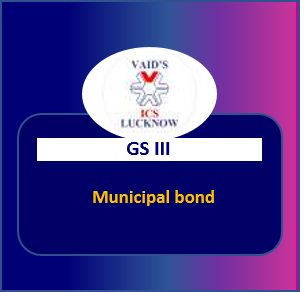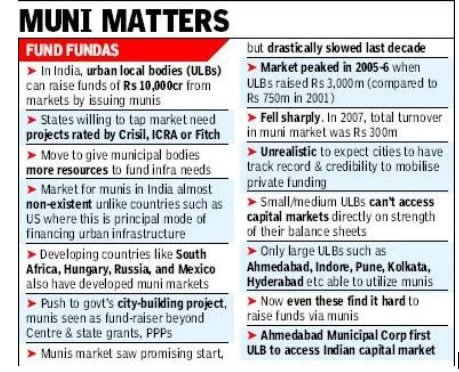CURRENT AFFAIRS
Get the most updated and recent current affair content on Padhaikaro.com
Municipal bond
- Vaid's ICS, Lucknow
- 24, Aug 2021

Why in News?
They are also known as “muni bonds” or “muni.”
- It is a debt security issued by the local bodies to finance its capital expenditures for construction works, maintenance etc. of highways, bridges or schools.
- They are generally exempt from taxes.
- These bonds are not backed by a sovereign guarantee, unlike the state development bonds.
Their Genesis:
- The committee on urban infrastructure (2011) estimated that Indian cities would need to invest around Rs 40 trillion at constant prices in the two decades to 2031 and Municipal Bonds can play a vital role in that.
- Following the recommendations, Municipal bond regulations were released by the SEBI in 2017.
- In 2017, NITI Aayog in its Three-year Action Agenda document also talks of utilizing the Municipal Bond market.

Pros:
- They are highly liquid and can be traded on the secondary market without incurring any tax penalties.
- They have a low cost of borrowing and prove beneficial for the projects having low viability, long gestation period and low to moderate cost recovery.
- They are crucial for the financial independence of the Urban Local Bodies.
Cons:
- The yield is low and the bonds may not be able to beat inflation over the long term.
- The bonds lose value as the interest rate goes up and may get traded at a value less than face value.
- There is also a need for State guarantees for the bonds.
Facts for Prelims:
Reverse Greenshoe Option
The definition of a reverse greenshoe option, also known as an overallotment option, is a provision used by underwriters in the initial public offering (IPO) process.
It is intended to provide increased price stability for the newly-listed security.